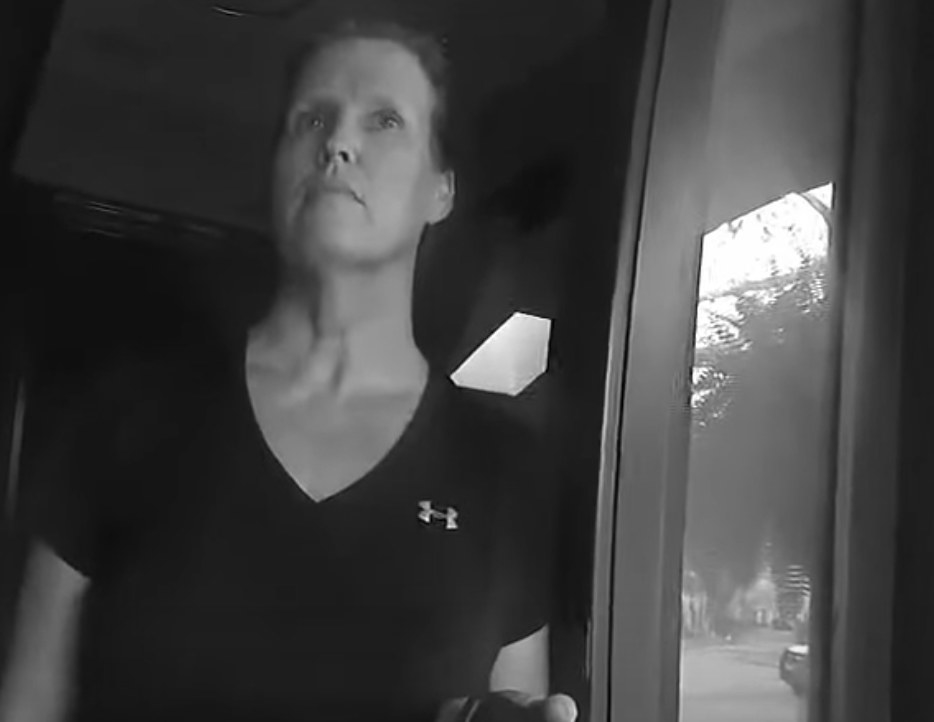They can isolate you: A teenager with cerebral palsy was snatched from the school gates and hidden from his parents.
They can bleed you dry: A successful rheumatologist was declared incapacitated after a bout of depression and lost her million-dollar waterfront home.
And they can leave you to die: A 46-year-old man died under a do-not-resuscitate order that went against the desperate pleas of his wife.
All three nightmares share a common cause: These people had been placed under the care — and control — of legal guardians. America’s guardianship system was designed as a last resort to be used only in the rare and drastic event that someone is totally incapacitated by mental or physical disability. In those cases, conscientious guardians can provide vital support, often in complex and distressing circumstances. But an investigation by BuzzFeed News has found that the system has grown into a vast, lucrative, and poorly regulated industry that has subsumed more than a million people, many of whom insist they are capable of making their own decisions, and placed them at risk of abuse, theft, and even death.
The #FreeBritney movement has drawn international attention to the case of Britney Spears, and wrongdoing by individual guardians has surfaced in the past, but our investigation reveals the systemic failings behind these isolated stories.
In local courts across the country — often woefully unfit for the sweeping power they command — guardians, lawyers, and expert witnesses appear frequently before the same judges in an established network of overlapping financial and professional interests. They are often paid from the estate of the person whose freedom is on the line, creating powerful incentives to form guardianships and keep them in place.
“The judge knows the lawyers, the lawyers know each other,” said J. Ronald Denman, a former state prosecutor and Florida lawyer who has contested dozens of guardianships over the past decade. “The amount of abuse is crazy. You’re going against a rigged system.”
Without being convicted of any crime, those declared incapacitated face some of the most severe measures that the courts can take against any US citizen. Most freedoms articulated in the UN Universal Declaration of Human Rights are denied to people under full guardianship: They can lose their rights to vote, marry, start a family, decide where they live, consent to medical treatment, spend their money, seek employment, or own property.
Thousands of professional guardians, lawyers, and corporations now hold sway over assets totaling tens of billions of dollars. Some guardians have hundreds of people under their control. And despite the public perception that guardianship is a protective measure for older adults nearing death, the system traps huge numbers of young people.
BuzzFeed News has scoured hundreds of thousands of court documents, obtained confidential mental health filings and financial records, examined hundreds of guardianship cases, gathered exclusive data from extensive public records requests, conducted hundreds of interviews, and carried out a detailed review of guardianship laws in all 50 states. Our investigation reveals an opaque, overgrown, and malfunctioning system wielding vast and frightening power in the dark.
People have been abused, neglected, and killed while living under guardianship. BuzzFeed News identified 20 cases in which young or middle-aged people died under questionable circumstances, including murder, severe neglect, or malnourishment. A 31-year-old man was abused by care home staff and buried in concrete for months before his guardian realized he was missing. No charges were brought against her and she is still in charge of 130 people.
People under guardianship — commonly referred to as wards — have been locked up and isolated from their families and friends, with guardians obtaining restraining orders to keep loved ones at bay. One professional guardian who concealed the whereabouts of a woman’s teenage son declared “I’m mom now” and said she had no problem “taking the noose around” the mother’s “neck and tightening it” to keep them apart, a nurse alleged in court filings.
In many states, guardians can force wards to undergo invasive medical procedures including the implantation of contraceptive devices — and in several cases, wards were permanently sterilized.
Court clerks have failed to perform vital checks in hundreds of cases, and lax vetting has left vulnerable people in troubling hands. The owner of one major guardianship corporation was given control of hundreds of wards — including young people — despite having been repeatedly accused of domestic abuse and assault involving children.
Guardians have had scores of younger people placed under do-not-resuscitate orders (DNRs) — including some who have a mental illness but are physically healthy — blocking their access to potentially lifesaving treatment if they fall seriously ill. Several middle-aged people, including a former space shuttle scientist, have died under these orders, sometimes without the courts being informed.
Professional guardians have stolen tens of millions of dollars from hundreds of people and exploited obscure trust fund laws to conceal their financial activity from the courts. One guardianship nonprofit drained the accounts of more than 800 people, while another professional guardian transferred money from several of her wards’ accounts into a trust controlled by her husband.
Other wards say they have been trapped under the guardianship of controlling relatives who strangled their ability to have social or romantic relationships, choose where they live, or express their true gender identity.
The public rarely hears from people who have
been stripped of their rights given the significant restrictions they
live under, but in an ongoing series, BuzzFeed News will report on the
cases of wards who endured harrowing ordeals while under the control of
private, public, and family guardians.
BuzzFeed News reviewed details of more than 200 guardianships involving young and middle-aged people across more than 30 states. In 130 of those cases — gleaned from court documents, interviews, first-person testimony, and local news reports — we found evidence suggesting that wards were exposed to financial exploitation, and 110 may have suffered abuse or neglect. There were nearly 50 claims that people had been isolated from friends and family, and dozens of reports that people were confined against their will. In scores of cases, people were put under guardianship based on a questionable finding of incapacity. Many cases indicated that wards had experienced several of these alleged harms at once.
No comprehensive data exists on the guardianship system, and courts in many states keep case documents under seal, making it impossible to say for sure how many people are under its control. Estimates have put the number of adult guardianship cases at more than one million — a figure that experts say is rising. BuzzFeed News filed public records requests to all 50 states and the District of Columbia to create an unprecedented dataset on the number of cases being opened across the country each year. Fewer than half of the states had fully usable data, but BuzzFeed News consulted statisticians to develop a national estimate based on the figures provided. Our analysis suggests that as many as 200,000 adult guardianship cases are filed per year.
People whose capacity is in question are often struggling with physical and mental conditions that make caring for them unquestionably difficult. But guardianship is such an extreme measure that in most states, judges are required by law not to impose it unless no other options are available. Too often, however, they opt for full guardianship in hearings that can last just minutes, without considering any alternatives. Many state laws allow hearings that determine if someone is incapacitated to be held without notifying the person in question, meaning someone can be placed under emergency guardianship without having an opportunity to fight back. Some people are placed under guardianship without even undergoing a medical examination. And people who have been declared incapacitated generally lose the right to appoint their own lawyers or represent themselves, which means that once guardianships are in place, they are often impossible to escape.
The loss of liberty is particularly consequential for people who have not yet had a chance at adult life. Many young Americans with disabilities are funneled into guardianship as soon as they turn 18 as part of what the National Council on Disability calls a “school-to-guardianship pipeline.” Most 18- to 22-year-olds who receive publicly funded services for intellectual and developmental disabilities have guardians.
Others have been declared incapacitated because of conditions that can often be managed, such as depression, PTSD, autism, physical disability, or addiction.
And for professionals who are unscrupulous, younger wards with access to large inheritances or personal injury payments can represent the most lucrative cases of all, because they have decades ahead during which the guardian can keep billing.
With no federal laws to govern guardians, the powers given to them can vary dramatically: In more than 10 states, the law grants full guardians the same powers over a ward as a parent has over an “unemancipated minor child.” Illinois judges may give guardians “custody of the ward's minor and adult dependent children.” Guardians in Arkansas can put wards in the county jail “for safekeeping,” and in Texas, they can lock wards in psychiatric hospitals before asking for court approval.
Many professional guardians work hard to care for clients who genuinely can’t care for themselves. Others are committed family members looking after vulnerable loved ones in exceptionally difficult situations.
But Shannon Butler, a “master guardian” and board member with the National Guardianship Association, said judges are too quick to put people under full guardianship because “It’s just easier for them, and honestly, it's easier for us too.”
The association has clear standards that guardianship should only be considered as a last option. “We should only be using those powers that are absolutely necessary,” she said. “A good guardian is actually working towards getting their wards out of guardianship.”
Yet flaws in the system leave “room for abuse,” Butler said. “If you’re somebody that’s predatory and you get into this business,” she added, “it’s scary.”
WHEN NO ONE IS WATCHING
 |
Elizabeth Hensley was stripped of her rights and put under guardianship by a judge while she was receiving treatment for depression in a Florida hospital.
The 59-year-old acknowledged she had autism and mental health difficulties, but begged the judge not to take away her rights. “I really do not need a guardian!” she wrote to the court, pleading to be allowed to return to her home where her partner, “precious cats and the garden” were waiting for her. But her pleas were denied.
Hensley was assigned a professional guardian who was meant to help her. Instead, she complained, she was kept under “lockdown” while court filings show the guardian paid herself from Hensley’s accounts without court permission.

Rebecca Fierle made millions while controlling the lives and finances of more than 500 people before she was charged last year with abuse and neglect of an older adult ward who died after she had him placed under a DNR and allegedly told doctors to cap his feeding tube. When police raided her office, they found urns containing the cremated remains of nine former wards on display. An analysis of thousands of court records by BuzzFeed News sheds new light on her practices.
Though Fierle marketed herself as a specialist in care for older adults, around a third of her wards at the time of her arrest had been placed under her guardianship in their youth or middle age. She sold people’s homes, cars, and belongings to pay her bills and moved hundreds of thousands of dollars from their accounts into opaque trust funds that shielded her from court scrutiny. More than $660,000 of Hensley’s money was moved into a trust that a 2019 audit found Fierle used to pay herself without court approval. Court auditors were able to track several thousand dollars Fierle had directed to herself and her business from Hensley’s accounts, but they noted that she had failed to provide records for numerous other transactions.
Fierle declined to respond to detailed questions from BuzzFeed News but has previously denied any wrongdoing and pleaded not guilty to the abuse and neglect charges. She told court auditors who flagged multiple concerns about her use of Hensley’s funds that all her spending was “for the ward’s benefit,” but she couldn’t prove it because her paperwork had been seized by law enforcement.
Like Hensley, many of Fierle’s wards were diagnosed with mental rather than physical ailments, including depression, bipolar disorder, and alcohol addiction. But records reveal she had dozens of young and middle aged people placed under DNRs and diverted thousands of dollars from their estates to buy prepaid burial plans from two favored local funeral homes — in one case for an 18-year-old with bipolar disorder and ADHD.
Judges eventually revoked nearly 100 DNRs in Fierle’s cases — but records show it was too late to free at least two of those wards from those orders. Unbeknown to the courts, Penny Pilkington, a 56-year-old woman with developmental disabilities, and Drazen Premate, a 63-year-old former space shuttle scientist who had schizophrenia, were already dead.
Other professions that yield such large financial rewards and power over the lives of vulnerable people — like law or medicine — typically require years of intensive training and extensive vetting. But guardianship generally demands neither.
In some states, guardians (sometimes referred to as conservators) control both a ward’s personal life and their money, while others assign a separate person to manage financial matters. These roles can be assumed without a degree in law, social work, or accounting — and some states require no more than a few hours of education before guardians are empowered to assume control of people’s lives.
Guardians are required to file annual reports on their wards' well-being and financial affairs, often reviewed by low-paid, overstretched court clerks who lack formal training in spotting fraud. Many clerks are also charged with vetting people seeking to become professional guardians — but troubling cases can slip through.
In Minnesota, records reveal the owner of a major guardianship corporation was placed in charge of hundreds of vulnerable people despite pleading guilty to domestic assault in 2004 after her son told police she threw him on the floor, slammed him against the wall, and called him a “shit head.” Rebecca Reich, who owns the firm Guardian and Conservator Services, had also been arrested the previous year for allegedly telling another child to get a knife from the drawer and kill her then-boyfriend, though no charges were brought. Court filings detail other allegations of domestic abuse involving her son.
The Minnesota Judicial Branch declined to comment on Reich’s case but said background checks are run every two years and provided to judges who use them to decide on a case-by-case basis whether to appoint guardians.
Reich’s father, a retired local judge who now represents her guardianship firm, responded to questions from BuzzFeed News on her behalf. He said she had pleaded guilty to assault only to spare her son the distress of testifying in court and the case was dismissed without an adjudication of guilt after she met her parole conditions. Reich’s father said she disputed all the allegations, which arose during a messy divorce, and reiterated that no charges had been brought against her. She had been fully vetted, he said, and currently serves on the statute committee of the Minnesota Association for Guardianship and Conservatorship. “The background concerns that you raise are incomplete, contested, and do not reflect years of subsequent competent and compassionate service,” he wrote.
In Florida, Fierle’s wrongdoing went unchecked for more than a decade. Court clerks had failed to raise warning signs, and regulators did not respond in a timely manner to reports about Fierle’s suspect practices. After her arrest, the head of the Florida Department of Elder Affairs said that the Office of Public and Professional Guardians — whose four employees were tasked with overseeing the conduct of hundreds of guardians across the state — had a backlog of 80 open investigations.
This spring, the comptroller of Orange County, where Fierle controlled the lives of more than 100 people, issued a damning 86-page report warning that overworked and ill-qualified court clerks were failing to subject guardians to basic scrutiny, such as criminal records checks. Some guardians had failed to report on the well-being of their wards for years without the clerks raising any concerns. Guardians had paid themselves from wards' estates without court approval and moved money into trusts without filing mandatory paperwork. The Orange County Clerk of Courts told BuzzFeed News she disagreed with many of the report’s findings, but had made recent improvements including adding more deputy clerks to the guardianship team and providing training in general accounting principles and reviewing internal procedures.
BuzzFeed News identified more than 130 cases across the country in which evidence suggested young or middle-aged wards were exposed to financial malpractice, including 50 cases involving trust funds, which can be used to shield guardians from court scrutiny.
One professional guardian moved money belonging to several of her wards into Florida trusts before successfully petitioning
the courts to release her of any obligation to account for future
spending because she said the money was no longer under her control. But
in three of those cases, the funds had been moved into a trust controlled by her husband. The conflict of interest was highlighted
in the report by Orange County investigators this spring, without
naming the guardian concerned. BuzzFeed News has identified her as Theresa Barton,
a professional who has controlled the lives of wards in Florida for 25
years. Her husband, Nick Barton, runs a non-profit that controls a pooled special needs trust used by guardians across the state to store wards’ funds. The Bartons did not respond to repeated requests for comment.
Another Florida guardian, Teri St. Hilaire, has faced scrutiny over alleged financial irregularities
involving more than 60 of her wards — including a 29-year-old man with
funds of more than $2 million following a personal injury settlement.
Records show St. Hilaire established a trust with his money and charged
fees of more than $70,000 by the time regulators launched
an investigation into the “wellbeing and financial affairs” of scores
of people in her care last year. The probe concluded in May, and a
report was sent to the Office of Public and Professional Guardians, but
its findings have been designated confidential. Meanwhile, St. Hilaire
continues to wield power over the wards who remain in her control. She
did not respond to requests for comment from BuzzFeed News.
Guardians are often legally empowered to liquidate wards’ assets to pay their own bills — and BuzzFeed News identified cases where people lost almost everything they owned. Among them was a rheumatologist in her 50s who was placed under guardianship after experiencing a bout of depression during acrimonious divorce proceedings in 2019. Her professional guardian had her placed against her will in a lockdown facility while arranging the sale of her $1 million waterfront home and other belongings. By the time she was released from guardianship eight months later, the guardian and her lawyers had charged more than $100,000 in fees and expenses. The guardian refused to comment.
In New Mexico, the owners of the nonprofit Ayudando Guardians embezzled around $10 million from more than 800 clients, spending the stolen funds on expensive cars, luxury homes, Las Vegas shopping sprees, and exotic holidays to the Caribbean and Hawaii. Court clerks had spotted no red flags in any of the firm’s financial filings, leaving the abuse to continue unchecked for more than a decade until junior employees blew the whistle. The firm’s president was finally sentenced to prison in July, but by then there was almost nothing left in the accounts of any of Ayudando’s wards.
As well as serving as guardian, conservator, or trustee for hundreds of “private pay” clients, Ayudando was paid millions of dollars by New Mexico’s Office of Guardianship to take over the lives and finances of people living in poverty.
THE POOR CAN VANISH
Ben Kothe / BuzzFeed News
Private guardians can profit from wards with access to large amounts of cash and valuable assets, but people with little money who get sucked into the state-run guardianship system are also vulnerable to abuse — and may be more easily overlooked.
Carl DeBrodie was a happy and high-spirited child with multiple developmental disabilities when he was first placed under the guardianship of Mary Martin, who said she raised him in a loving home with his own pet horse. But she didn’t realize she and her husband had to apply to be his guardians after he became an adult, she told BuzzFeed News, so DeBrodie eventually came under the control of a public guardian named Karen Digh Allen.
In Missouri, elected public administrators handle the cases of incapacitated people without financial resources or anyone else to care for them. Allen has overseen hundreds of wards in Callaway County since 1997. As DeBrodie’s guardian, she was responsible for ensuring he received proper medical care and lived in a safe and comfortable setting.
Debrodie was placed in a group home named Second Chance. While he lived there, Martin reported seeing him covered in cuts and bruises. After she reported the alleged injuries, she was banned from seeing DeBrodie, according to her testimony in confidential court records obtained by BuzzFeed News. Martin applied to adopt him as an adult, but Allen filed an objection.
A law professor named Mary Beck who was appointed by the court to determine DeBrodie’s best interests in the adoption case concluded that he wanted to live with Martin and her husband, who he knew as “Mom” and “Dad.” In the confidential report, she also noted what she saw as a “conflict of interest”: Allen’s longtime deputy had a second job working for Second Chance. Allen later said that homes like Second Chance had a financial incentive to hold on to clients, according to the Fulton Sun: "The amount of money paid almost creates a scenario that invites deception if you don't have good people in there.”
The judge ruled against the adoption, and the Martins said they never saw DeBrodie again.
“Why keep him from a home where he was loved, where he wanted to be?” Beck said to BuzzFeed News regarding Allen’s objections.
 |
| Carl DeBrodie |
Multiple Second Chance staffers went on to plead guilty in connection to DeBrodie’s death in what a judge called “one of the most deplorable, depraved and disturbing” cases he’d ever heard.
Allen refused to answer questions about her role in DeBrodie’s case. “In 25 years, I’ve always been neutral,” she said, adding that it was the judge’s decision to deny the adoption she contested, not hers. She said she was involved in efforts to strengthen guardianship policy both state and nationwide. She was originally named in the civil lawsuit but was dismissed as part of a settlement agreement with the county. Her lawyer argued she could not have known about DeBrodie’s abuse or death given Second Chance’s elaborate cover-up.
She still holds her elected office and currently oversees 130 people. In May this year, Allen was named Missouri’s public administrator of the year as well as Callaway County's April employee of the month. “Allen is a great example of an employee who goes above and beyond every day,” the announcement said.
Public guardianships for people who have little or no money form a significant part of the industry. Across America, young people in group homes, specialist schools, or foster placements have been pushed straight into guardianships as soon as they turn 18.
“In a lot of cases, it’s just reflexive,” said disability rights attorney Viviana Bonilla López. Parents of children with disabilities turning 18 are often told by doctors, teachers, or lawyers that they will lose any say in their care unless they get a guardianship. What they don’t know is that, as soon as they’re in the system, the judge can push the parents aside and appoint a professional — even a stranger — in their place. “Parents say, ‘I don’t know how this happened. I didn’t mean to do this. Help me get them out,’” Bonilla López said. But by then, it’s often too late.
Public guardians are typically paid by the state to take on wards only if no one else is willing to do so. In such cases, judges frequently favor the total removal of the ward’s rights. Young adults who enter guardianship can find that they are in it for life.
BuzzFeed News reviewed
details of 19 cases in which wards were allegedly abused, neglected,
isolated from friends or family, wrongly stripped of their rights, or
killed while under the control of public guardians. (Click to continue reading)












